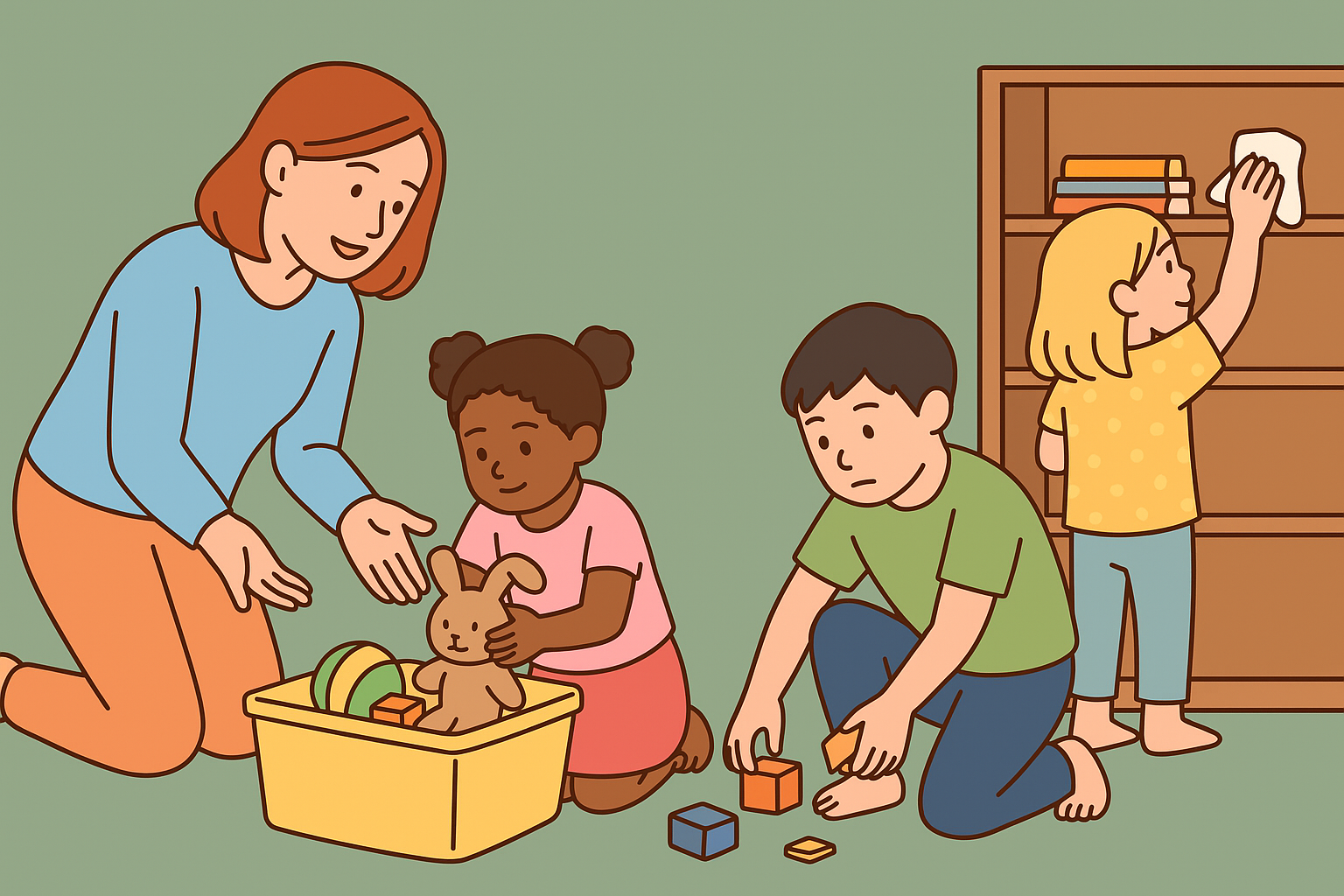Encouraging Cooperation Without Bribes or Threats
Encouraging Cooperation Without Bribes or Threats
Every parent wants their child to listen — but what happens when every request turns into a negotiation?
“Clean your room and I’ll give you a cookie.”
“If you don’t stop yelling, no TV tonight.”
It’s easy to fall into the cycle of rewards and punishments, but those quick fixes teach short-term compliance — not long-term cooperation. The real goal is to help kids want to cooperate because it feels good to belong, help, and contribute — not because they’re afraid or expect a prize.
Why Bribes and Threats Don’t Build True Cooperation
Bribes and threats rely on external motivation. Your child listens for what they’ll get or lose — not because they understand why cooperation matters.
This creates a cycle:
The moment the reward disappears, so does the behavior.
The child learns to ask, “What’s in it for me?”
Connection gets replaced by control.
✨ Cooperation built on fear or reward fades fast.
✨ Cooperation built on trust and connection lasts.
👉 See also: Natural Consequences vs. Punishment: What Really Teaches Kids to Learn from Mistakes
1. Focus on Belonging and Significance
According to Positive Discipline research, children misbehave when they feel disconnected or powerless. The antidote is belonging — showing that their actions matter to the family.
Try:
“We’re a team — can you help me set the table?”
“It’s your turn to feed the pet; you’re really good at remembering!”
“You’re helping our morning run smoothly.”
✨ Connection creates cooperation without coercion.
Skill focus: empathy, teamwork, responsibility
2. Use Encouragement Instead of Praise
Praise focuses on the outcome (“Good job!”). Encouragement focuses on the process (“You worked hard on that!”).
Examples:
Instead of “You’re so smart,” say “You kept trying even when it was hard.”
Instead of “You’re the best helper,” say “That made a difference — thank you.”
✨ Encouragement builds intrinsic motivation — the desire to help because it feels right.
Skill focus: growth mindset, perseverance, empathy
👉 See also: Teaching Self-Control Through Play
3. Invite Cooperation, Don’t Command It
Kids tune out commands but respond to invitations. An invitation communicates respect and partnership.
Try:
“Can you show me how fast you can put those blocks away?”
“Would you like to start brushing teeth or washing hands first?”
“Let’s do it together and make it fun.”
✨ The difference is tone — not authority, but collaboration.
Skill focus: cooperation, confidence, communication
4. Replace “If You Don’t…” with “When You Do…”
Reframing directions shifts the focus from threat to success.
Instead of:
“If you don’t pick up your toys, no TV.”
Say:
“When your toys are picked up, we’ll have time for a show.”
✨ This keeps the outcome positive and predictable — no fear, no resentment.
Skill focus: structure, anticipation, problem-solving
👉 See also: Preventing Power Struggles Before They Start
5. Give Responsibility, Not Rewards
Children thrive when trusted with real responsibility. It signals: “I believe in you.”
Examples:
Let them choose which vegetable goes with dinner.
Give them a small household task that matters.
Involve them in planning family routines.
✨ The more meaningful the role, the stronger the cooperation.
Skill focus: autonomy, accountability, intrinsic motivation
6. Use Natural Recognition
Instead of external rewards, reflect the impact of their contribution.
Say:
“Thanks for helping clean up — look how nice the room feels now.”
“Because you were ready on time, we got to play an extra song!”
✨ Recognition reinforces the value of teamwork.
Skill focus: intrinsic reward, reflection, gratitude
7. Model Cooperation Yourself
Children mirror how you respond to requests.
When you cooperate with patience, they learn by watching.
Say:
“Sure, I’ll help with that — and then I’ll need your help too.”
“Let’s take turns helping each other today.”
✨ Cooperation is contagious when modeled consistently.
Skill focus: empathy, role modeling, shared responsibility
👉 See also: How to Use Co-Regulation Instead of Control
8. Handle Defiance with Curiosity
When a child refuses to cooperate, don’t jump to punishment — get curious.
Ask:
“What’s making it hard right now?”
“Do you need a break or some help?”
“How can we make this easier next time?”
✨ Curiosity keeps the relationship intact — even in conflict.
Skill focus: problem-solving, emotional safety, communication
Key Takeaways
Rewards and threats create short-term obedience but long-term resistance.
Belonging, encouragement, and shared purpose build true cooperation.
Invite participation instead of demanding it.
Model respect to get respect in return.
Bribes and threats make parenting feel like a tug-of-war — both sides pulling harder to win. But when cooperation is rooted in connection, encouragement, and shared purpose, your child learns the most important lesson of all: that working with others feels better than working against them.
This content is for educational purposes and is not a substitute for professional medical or psychological advice.
Popular Parenting Articles




